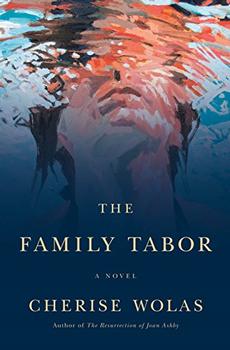Page 5 of 5
There are currently 34 reader reviews for The Family Tabor
Write your own review!
Nanette C. (Saraota, FL)
Disappointing Follow-Up
Expectations are a dangerous thing. "The Resurrection of Joan Ashby" by Cherise Wolas was one of my favorite books of 2017. I loved it from the first page. I thrust it into other people's hands. And so I was excited when I heard about "The Family Tabor" and thrilled to have the chance to read an advance copy. Sadly, it could have been written by a different author entirely.
The writing has none of the literary quality of "Joan Ashby." By way of example, the third chapter starts off with a short paragraph that uses the word "luck" four times. Where was the editor? To make matters worse, luck wasn't even one of the themes of the book!
The story also left me cold. Without including too many spoilers, the biggest issue (of many) for me was the premise that the father buried deep in his psyche a series of actions taken in his earlier life that were totally counter to the person he'd become. When he woke up one day and "remembered" what he'd done, his corrective course of action was beyond unbelievable.
Perhaps if I had come to "The Family Tabor" without having read "Joan Ashby," my reaction would have been different. But I don't think so. In fact, it's a book I would have set aside well before the final page if I hadn't been obligated to write this review.
Sorry, Ms. Wolas, but I know you can do better than this.
Nancy H. (Lisle, IL)
An exclusionary tale of the search for redemption
Being sympathetic to, but not of the Jewish faith, I found this book irritatingly exclusionary. The author's perspective seems to be that there is something particular and specific to a Jewish family's experience of guilt and redemption that does not apply to those from other, or no faith. I kept wanting to be allowed into the discussion, but felt there was a prohibition against my participation based on being from the "wrong" culture. I generally enjoy books that illuminate how others live, allowing me to see that we earthlings have more in common than not. This book made me feel that interesting discussions were being had, but I could not possibly contribute to or benefit from the conversation. Surely lying to one's family about one's alleged successes, remorse for wrongs committed, and the search for meaning and redemption are universal themes. Yet Wolas seems bent on convincing me otherwise.
Wolas structures the novel by giving each character dedicated chapters in which she or he expounds on the particular slant of their own mendacity and remorse. Yawn. This is an approach we've seen far too often, and often rings trite even in the most capable hands. I slogged through the book, trying to find a spark of originality or believable tension. It wasn't worth the struggle.




